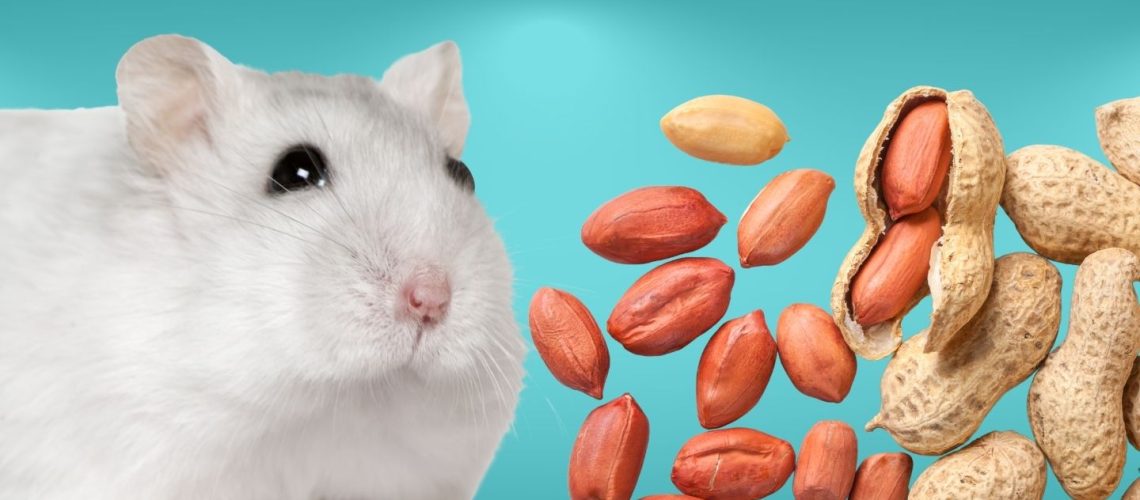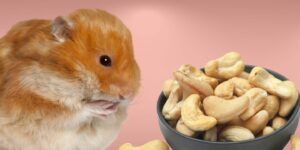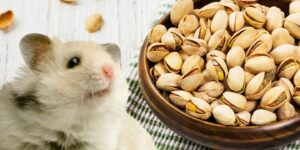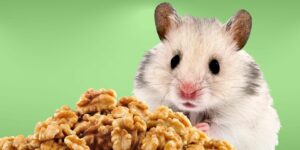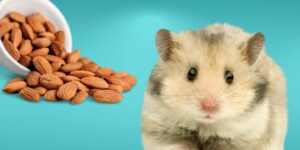Hamsters can eat peanuts, but only in moderation. Peanuts are high in fat and should not make up a large portion of a hamster's diet. In this article, we will discuss the nutritional content of peanuts, the benefits and risks of feeding peanuts to hamsters, as well as alternatives to peanuts and tips for maintaining a balanced hamster diet.
Introduction
What are peanuts?
Peanuts, also known as groundnuts, are a type of legume that is commonly categorized as a nut due to its similar nutritional composition to tree nuts. They are rich in protein, healthy fats, vitamins, and minerals but can be high in calories and fat, which is why they should only be fed to hamsters in moderation.
Nutritional content of peanuts
Peanuts are a great source of protein, healthy fats, vitamins (such as vitamin E and B-complex vitamins), and minerals (including magnesium, copper, and manganese). However, they are also high in calories and fat content, making them more suitable as an occasional treat for hamsters rather than a staple food.
Hamsters' dietary needs
Hamsters are omnivores, which means they require a balanced diet that includes plant-based and animal-based protein sources, as well as fruits, vegetables, and whole grains. It's important to provide a balanced diet for your hamster to ensure they maintain good health and avoid obesity or other health issues.
Benefits of Peanuts for Hamsters
Protein source
Peanuts can provide your hamster with essential amino acids, which contribute to its muscle growth and tissue repair.
Vitamins and minerals
Peanuts are rich in vitamins and minerals that help keep your hamster healthy, such as vitamin E, B-complex vitamins, magnesium, copper, and manganese.
Mental stimulation and enrichment
Offering your hamster a variety of treats, such as peanuts or other safe nuts and seeds, can provide mental stimulation and enrichment, encouraging natural foraging behavior.
Preparing Peanuts for Hamsters
Choosing the right peanuts (unsalted, raw or roasted)
When feeding peanuts to your hamster, opt for unsalted, raw, or dry-roasted peanuts. Avoid salted or flavored peanuts, as they can negatively affect your hamster's health.
Removing the shell
Hamsters are unable to chew through hard shells, so it's essential to remove the shell before offering a peanut to your furry friend.
Chopping or crushing the peanut
To avoid potential choking hazards, chop or crush the peanut before giving it to your hamster.
Alternatives to Peanuts for Hamsters
Other nuts and seeds (pumpkin seeds, sunflower seeds, almonds)
Other safe nut and seed alternatives for hamsters include pumpkin seeds, sunflower seeds, and almonds. Remember to offer these treats in small amounts to avoid excessive fat intake.
Fresh fruits and vegetables
Hamsters can also enjoy a variety of fresh fruits and vegetables, such as carrots, bell peppers, and cucumbers. Introduce new foods slowly and in small amounts to prevent digestive issues.
Commercial hamster treats
Commercially available hamster treats can also provide your pet with an occasional reward, but ensure they are suitable for your hamster's dietary needs and not loaded with added sugars or preservatives.
Monitoring Your Hamster's Health
Signs of a healthy hamster
Healthy hamsters are active, with bright eyes, a clean coat, and proper grooming habits. They should have a healthy appetite and maintain a consistent weight.
Signs that your hamster is overeating or gaining weight
If your hamster shows signs of weight gain, such as difficulty moving or grooming, decrease the amount of peanuts and other high-fat treats in their diet.
When to consult a veterinarian
If your hamster shows signs of poor health, digestive issues, or unexplained weight loss or gain, consult a veterinarian for advice on adjusting their diet.
Frequently Asked Questions
Can hamsters eat peanut butter?
Though not toxic, peanut butter can be high in sugar and sticky, which may pose choking hazards to hamsters. It's best to avoid feeding peanut butter to your hamster.
Are there any specific peanut types to avoid?
Stay away from salted, flavored, or sugar-coated peanuts, as these can negatively impact your hamster's health.
What other nuts should be avoided or limited in a hamster's diet?
Avoid giving your hamster macadamia nuts and limit high-fat nuts such as walnuts and pecans.
Tips for Feeding Your Hamster a Balanced Diet
Proper ratio of food groups (protein, fruits, vegetables, grains, etc.)
Ensure your hamster's diet consists of a variety of foods, including protein sources, fruits, vegetables, and whole grains, to maintain a well-balanced diet.
Importance of fresh water
Provide your hamster with constant access to fresh, clean water to support overall health.
Avoiding overfeeding and food waste
Feed your hamster according to the manufacturer's guidelines or consult a veterinarian about proper portion sizes. Remove any uneaten food after a few hours to prevent food waste and spoilage.
Summary
While hamsters can safely eat peanuts, they should only be given as an occasional treat in small amounts. Ensure you select unsalted, raw, or dry-roasted peanuts, remove the shell, and chop or crush the nuts before feeding. Monitor your hamster's health and adjust their diet as needed to maintain a healthy weight and nutritional balance.

